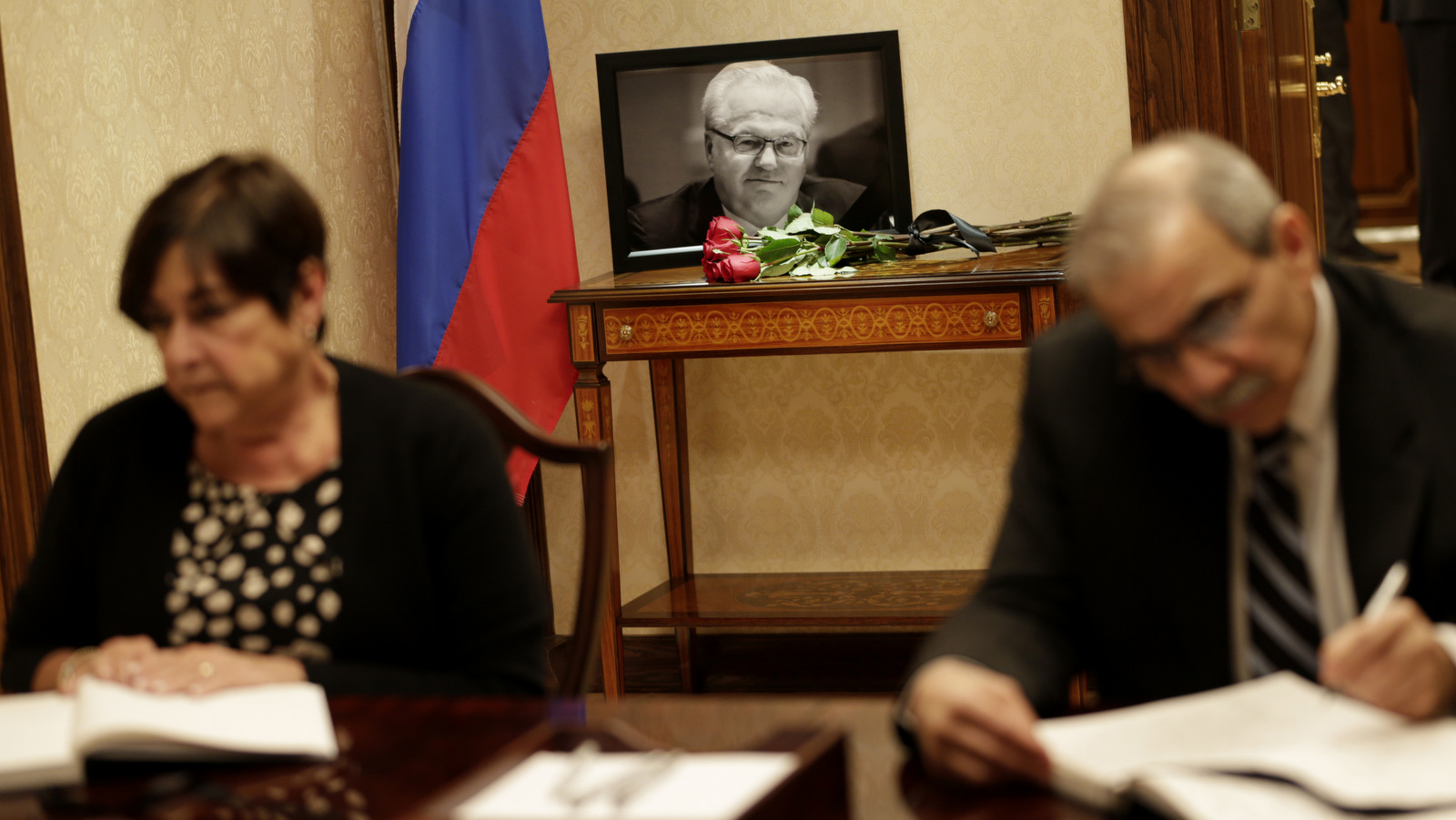Four top Russian diplomats, including three ambassadors, have died suddenly and under mysterious circumstances just within the last 60 days.
MOSCOW — While few might consider being a diplomat a life-threatening or even dangerous job, that trend may be quickly reversing — that is, at least for Russian diplomats.
With recent media attention squarely focused on Donald Trump’s ascension to the Oval Office and various controversies swirling throughout the early days of his presidency, a string of sudden, mysterious deaths of top Russian diplomats have largely evaded media scrutiny and public attention.
Further, public interest in these deaths, at least in the United States, has been minimized, as much of the negative press Trump has received along the same timeframe has been related to his allegedly close relationship with the Russian government, tying in with months of anti-Russian propaganda relating to the Syrian conflict and allegations that Russia had a role in manipulating the U.S. presidential election.
Since late December, four top Russian diplomats, including three ambassadors, have died under circumstances that remain unclear.
This troublesome trend began on Dec. 20, when Andrey Karlov, Russia’s ambassador to Turkey, was gunned down in Ankara during a photo exhibition event. The assailant, a 22-year-old off-duty Turkish police officer, took advantage of the bloody spectacle to yell, “Don’t forget Aleppo!” — a reference to Russia’s controversial role in helping the Syrian government reclaim what was once the country’s largest city from U.S.-backed Al-Qaida terrorists.
Karlov’s death came at a critical juncture in Russian-Turkish relations, as the two nations were in the midst of reconciliation efforts following an incident in which Turkey shot down a Russian fighter jet over Syria in 2015, damaging diplomatic relations.
Russian President Vladimir Putin called Karlov’s assassination a clear provocation intended to derail Syrian peace negotiations. Turkish President Recep Tayyip Erdogan echoed these sentiments, adding, “Both Turkey and Russia have the will not to be deceived by this false flag attack.”
However, media attention of the assassination was derailed, as it took place on the same day as a high-profile terrorist attack in Berlin carried out by a Tunisian asylum seeker who had allegedly expressed support for Daesh (an Arabic acronym for the terrorist group known in the West as ISIS or ISIL).
A few weeks later, yet another Russian diplomat died suddenly, this time in Athens, Greece.
Andrey Malanin, a senior diplomat at Russia’s embassy in the Greek capital, was found dead on the bathroom floor of his apartment on Jan. 9. After his body was discovered, Greek police launched an investigation into his death. Despite an initial statement that Malanin appeared to have died from natural causes at “first sight,” the investigation has yet to conclude, leaving the official cause of Malanin’s death still unestablished.
The weeks since have seen the deaths of two more Russian ambassadors.
Russia’s ambassador to India, Alexander Kadakin, died at a hospital in India on Jan. 26 following a “brief,” unspecified illness. Indian leaders mourned the death of Kadakin, who was credited with having played a significant role in promoting Indian-Russian relations, culminating in major defense and energy deals between the two nations in October of last year.
Most recently, on Feb. 20, Vitaly Churkin, Russia’s ambassador to the United Nations, died suddenly at work in New York. In its official announcement, Russia’s foreign ministry offered no details on the circumstances of Churkin’s death, instead offering condolences to his friends and relatives. Unnamed U.S. government and law enforcement officials, however, told Reuters that Churkin had apparently died of a heart attack, though the exact cause of his death remains unknown.

A picture of Vitaly Churkin, Russia’s ambassador to the United Nations, is displayed while people sign condolences books at the Russian Mission to the U.N. in New York, Tuesday, Feb. 21, 2017. (AP/Seth Wenig)
Churkin’s deputy, Pyotr Ilyichev, said the late diplomat “devoted his whole life to defending the interests of Russia and was found on the very front lines and in the most stressful posts.” Indeed, Churkin drew condemnation from several of his Western colleagues for his strong defense of Russia’s bombing campaign in the Syrian city of Aleppo, yet remained steadfast in his support of Moscow’s foreign policy.
Russian news agencies reported that Putin was deeply upset by the news of Churkin’s death.
The deaths of these four high-level Russian diplomats came at a time of uncertainty in U.S.-Russian relations. International attention has focused heavily on the controversial phone call between Trump’s national security advisor, retired Gen. Michael Flynn, and a Russian diplomat at Russia’s U.S. embassy, which ultimately led to Flynn’s resignation.
As the controversy surrounding Flynn consequently focused attention on the relationship between the Trump administration and the Russian government, this string of deaths came at a time when diplomatic nuance and expertise would be particularly useful.
Media Silent As 4 Top Russian Diplomats Die Mysteriously In Last 60 Days




